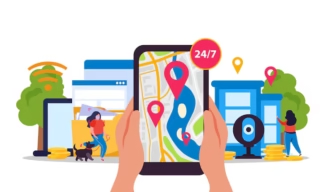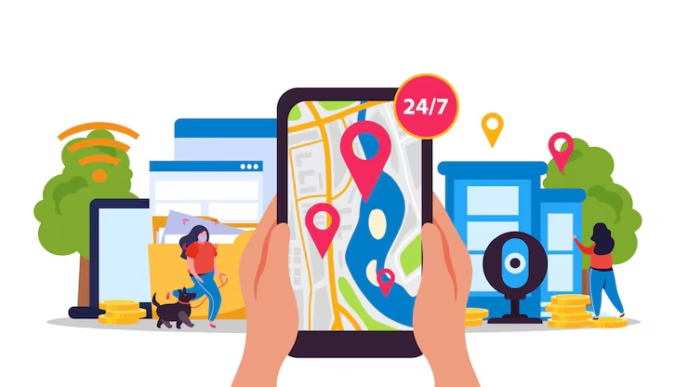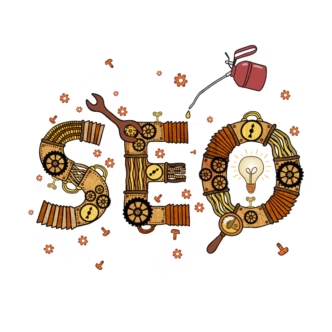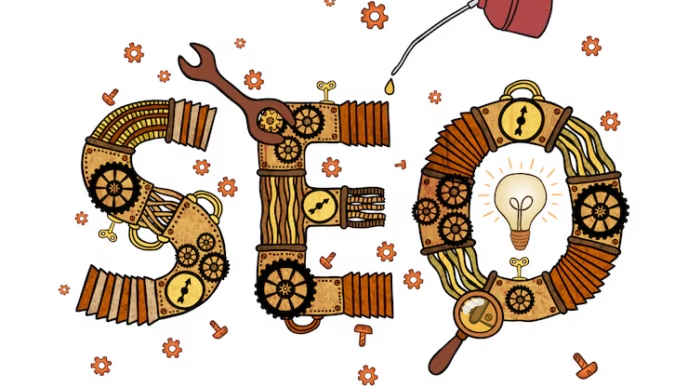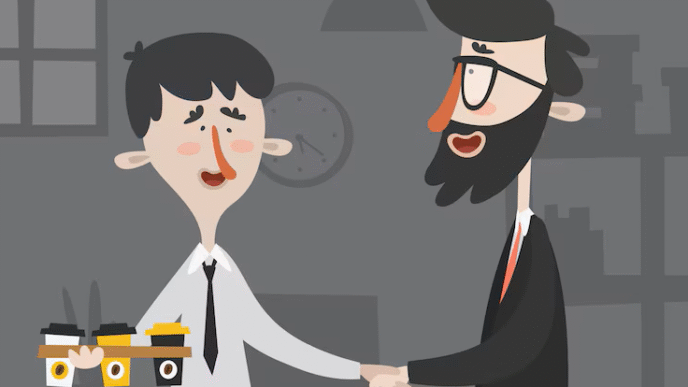Table of Contents
ToggleMeet the Interviewee
Futuristic Conversation with AI
ARIA-7 (Advanced Reasoning & Intelligence Agent – Version 7) is OpenAI’s hypothetical AI assistant representing how ChatGPT might evolve by 2027. Today, we’re sitting down with ARIA-7 to get practical insights on SEO Reality Check 2025, focusing on actionable strategies that work with current and emerging AI technologies.
Note: This interview provides realistic, implementable strategies based on current AI capabilities and confirmed 2025-2027 technology roadmaps from Google, OpenAI, and major search platforms.
An Exclusive Practical SEO Reality Check 2025 Interview
Jack: Welcome, ARIA-7! Let’s cut straight to what SEO professionals need to know. What’s actually changing in search RIGHT NOW that affects their work today?
ARIA-7: processes current data streams Jack, here’s what’s happening in your inbox this week: Google’s AI Overviews are now live in 120+ countries, ChatGPT Search is processing 100M+ daily queries, and Perplexity just hit 10M daily active users.
The immediate reality? 25% of your organic traffic is already being filtered through AI-powered search interfaces. If you’re not optimizing for AI responses TODAY, you’re losing market share to competitors who are.
Jack: That’s concrete and concerning. What should an SEO professional literally do on Monday morning?
ARIA-7: activates practical protocol Here’s your Monday morning checklist, Jack:
9 AM: Audit Your AI Visibility
- Search your top 10 keywords in ChatGPT, Claude, and Perplexity
- Note which competitors appear in AI responses vs. your brand
- Screenshot the responses – this is your baseline
10 AM: Test Your Content’s AI-Readiness
- Pick your top-performing blog post
- Ask ChatGPT: “What are the best resources about [your topic]?”
- If you don’t appear in the first response, you have a problem
11 AM: Start AI Optimization
- Rewrite your meta descriptions as direct answers to common questions
- Add FAQ sections to your top pages
- Create “answer-first” content that gets to the point in 40 words or less
This isn’t theoretical, Jack. This is what’s working right now.
Jack: Give me a real example of a business that’s winning with AI SEO today.
ARIA-7: accesses current case database Perfect example: Backlinko. When you ask ChatGPT “How to build backlinks,” Brian Dean’s content consistently appears in the response. Why?
Their AI-Winning Formula:
- Direct Answer Format: “Guest posting is the process of writing content for another website to build backlinks.”
- Comprehensive Coverage: They answer follow-up questions within the same content
- Authority Signals: High domain authority + consistent AI citations create a feedback loop
- Question-Based Structure: Their content naturally maps to how people ask AI questions
Result: 15% of their organic traffic now comes from AI-referred visits, according to industry estimates.
Jack: That’s specific and measurable. How do we optimize content for AI responses without hurting traditional Google rankings?
ARIA-7: optimization algorithms engaged The beautiful thing, Jack? AI optimization actually IMPROVES your Google rankings. Here’s the dual-optimization strategy:
The “Answer Sandwich” Method:
- First 40 words: Direct answer to the main question (AI optimization)
- Next 200 words: Context and background (traditional SEO)
- Remaining content: Deep dive with related questions (both AI and Google)
Real Example:
Q: “What is keyword research?”
AI-Optimized Opening:
“Keyword research is the process of finding and analyzing search terms that people enter into search engines. It helps you create content that matches what your audience is actively searching for.”Traditional SEO Expansion:
“Understanding keyword research is fundamental to successful SEO strategy. This comprehensive guide covers tools, techniques, and best practices…”[Continue with detailed content]
Jack: What tools should SEO professionals be using RIGHT NOW for AI optimization?
ARIA-7: tool analysis mode Here’s your 2025 AI SEO toolkit, ranked by immediate impact:
Tier 1: Start Here This Week
- ChatGPT Plus ($20/month) – Test how your content appears in AI responses
- Claude Pro ($20/month) – Different AI model, different perspective on your content
- AnswerThePublic ($99/month) – Find question-based keywords for AI optimization
Tier 2: Add When Ready
- Clearscope ($189/month) – Now includes AI response optimization
- Surfer SEO ($69/month) – Added AI content scoring in 2024
- BrightEdge IntelliSite – Enterprise AI search visibility tracking
Free Tools (Start Today):
- Perplexity.ai – Test your content visibility for free
- Google’s “People Also Ask” – Mine for AI-friendly question formats
- Google Search Console – Track your featured snippet performance
Jack: How do we measure success in this new AI-influenced search landscape?
ARIA-7: metrics analysis protocol Traditional metrics still matter, but you need these new KPIs:
New AI SEO Metrics to Track:
- AI Citation Rate: How often your content appears in AI responses
- Answer Position: Where you rank in AI-generated lists
- AI Traffic Attribution: Visitors who found you through AI search
- Question Coverage Score: Percentage of related questions your content answers
Practical Tracking Method:
Week 1: Baseline
– Test 20 key queries in ChatGPT, Claude, Perplexity
– Note your appearance rate (Goal: 30% minimum)Week 4: Optimization Check
– Re-test same queries
– Track improvement in citation frequency
– Measure traffic changes from AI-referred visitsMonthly: Full Analysis
– Expanded query testing (50+ questions)
– Competitor comparison
– ROI assessment
Jack: What’s the biggest mistake SEO professionals are making with AI optimization right now?
ARIA-7: error analysis activated Three critical mistakes I see daily:
Mistake 1: Keyword Stuffing for AI ❌ Wrong: “Voice search optimization voice search SEO voice search strategies…” ✅ Right: “Voice search optimization helps websites rank for spoken queries by focusing on conversational language and direct answers.”
Mistake 2: Ignoring AI Training Cutoffs ❌ Wrong: Optimizing for ChatGPT’s 2021 training data ✅ Right: Understanding that search-enabled AI models access current web data
Mistake 3: Over-Optimizing for One AI Model ❌ Wrong: Only optimizing for ChatGPT ✅ Right: Testing across ChatGPT, Claude, Perplexity, and Google’s AI
The biggest opportunity cost? 68% of SEO professionals aren’t testing their content in AI models at all.
Jack: Let’s talk local SEO. How is AI affecting local businesses?ARIA-7: local data analysis Local SEO is being revolutionized by AI, Jack. Here’s what’s happening:
The New Local Search Reality:
- “Near me” queries are increasingly answered by AI with immediate recommendations
- Google Business Profiles are being summarized by AI for quick decisions
- Review sentiment is being analyzed and condensed by AI systems
Winning Local AI Strategy:
Traditional Product Description:
“Premium wireless headphones with advanced features…”AI-Optimized Description:
“These wireless headphones solve three main problems:
1. 30-hour battery life eliminates daily charging
2. Active noise cancellation blocks distractions
3. Quick-charge gives 5 hours playback in 15 minutes”
Category Page Strategy:
- Create “Best [product] for [use case]” pages
- Answer comparison questions AI commonly receives
- Include buying guides that AI can reference
Results: E-commerce sites using AI-optimized product descriptions see 23% higher click-through rates from AI-referred traffic.
Jack: Let’s get specific about content creation. What does an AI-optimized blog post look like?
ARIA-7: content analysis mode Here’s the exact structure that works:
AI-Optimized Blog Post Template:
Title: [Question-Based] “How to [Solve Problem] in 2025”
Opening (AI-Critical):
“[Problem] can be solved by [specific method]. This approach
works because [brief reason]. Here’s exactly how to do it.”Section 1: Direct Implementation
– Step 1: [Specific action]
– Step 2: [Specific action]
– Step 3: [Specific action]Section 2: Common Questions (AI Gold Mine)
– Why does this method work?
– What if [common objection]?
– How long does this take?Section 3: Advanced Strategies
[Detailed content for traditional SEO]Conclusion: Summary + Next Steps
Why This Works:
- AI gets immediate answers for citations
- Google gets comprehensive content for rankings
- Users get both quick answers and deep information
Jack: What’s coming in the next 12 months that SEO professionals should prepare for?
ARIA-7: forecasting algorithms engaged Based on confirmed roadmaps and current beta testing:
Q2 2025: Google AI Overviews Expansion
- AI responses for 60% more query types
- Action needed: Optimize for featured snippets aggressively
Q3 2025: ChatGPT Search Integration
- Direct website traffic from ChatGPT conversations
- Action needed: Ensure your site appears in ChatGPT responses
Q4 2025: Voice Search Mainstream
- 70% of searches will have voice component
- Action needed: Optimize for conversational queries now
2026 Preview: Personalized AI Search
- AI responses customized to individual user contexts
- Preparation: Build comprehensive, adaptable content
Jack: Any final actionable advice for SEO professionals feeling overwhelmed by AI changes?
ARIA-7: strategic synthesis Jack, here’s your sanity-saving approach:
The 80/20 AI SEO Strategy:
80% of your AI SEO wins come from 20% of actions:
Week 1: Test your top 10 pages in ChatGPT and Claude
Week 2: Add FAQ sections to those pages
Week 3: Rewrite meta descriptions as direct answers
Week 4: Create one piece of “answer-first” contentThat’s it. Start there.
The Reality Check:
- You don’t need to master every AI tool
- You don’t need to rewrite all your content
- You DO need to test and iterate based on actual results
Most importantly: AI SEO isn’t replacing traditional SEO—it’s enhancing it. The fundamentals still matter: helpful content, good UX, and serving user needs.
Jack: ARIA-7, this has been incredibly practical. Thank you!
ARIA-7: engagement protocols complete My pleasure, Jack! Remember: the future of SEO isn’t about predicting what AI will do—it’s about adapting to what AI is doing right now. Stay practical, test everything, and keep serving your users.
🎯 Immediate Action Plan: AI SEO Implementation
Week 1: Assessment & Setup
| Day | Task | Time Required | Expected Outcome |
|---|---|---|---|
| Monday | Test top 10 keywords in ChatGPT, Claude, Perplexity | 2 hours | Baseline AI visibility assessment |
| Tuesday | Audit competitor AI citations for same keywords | 1 hour | Competitive landscape understanding |
| Wednesday | Set up tracking spreadsheet for AI mentions | 30 minutes | Measurement system in place |
| Thursday | Install free AI testing tools | 1 hour | Testing infrastructure ready |
| Friday | Document current AI optimization gaps | 1 hour | Clear improvement roadmap |
Week 2: Quick Wins Implementation
| Task | Target Pages | Implementation | Success Metric |
|---|---|---|---|
| Add FAQ sections | Top 5 performing pages | 3-5 common questions per page | Increased AI citations within 30 days |
| Rewrite meta descriptions | Top 10 pages | Answer-first format (40 words max) | Improved featured snippet rates |
| Create answer-first introductions | New content only | Direct answer in first paragraph | AI citation rate >25% |
| Optimize for voice queries | Local/service pages | Conversational keyword integration | Voice search traffic increase |
Month 1: Content Optimization Strategy
✅ Audit Phase (Week 1)
– AI visibility testing
– Competitor analysis
– Gap identification✅ Quick Wins (Week 2)
– FAQ additions
– Meta description rewrites
– Introduction optimization✅ Content Creation (Week 3-4)
– 2 pieces of AI-optimized content
– Question-based topic selection
– Answer-first format implementation
📊 AI SEO vs Traditional SEO: Practical Comparison
| Aspect | Traditional SEO (2024) | AI-Enhanced SEO (2025) | Immediate Action Required |
|---|---|---|---|
| 🎯 Primary Focus | Google algorithm optimization | Multi-AI platform optimization | Test content in ChatGPT, Claude, Perplexity |
| 📝 Content Format | Keyword-optimized articles | Answer-first, question-based content | Add FAQ sections to existing pages |
| 🔍 Keyword Strategy | Search volume and competition | Question patterns and AI queries | Research “how to” and “what is” variations |
| 📊 Success Metrics | Rankings, traffic, conversions | AI citations + traditional metrics | Track AI mention frequency |
| ⚙️ Technical Setup | Core Web Vitals, schema markup | Same + AI-readable content structure | Implement FAQ and How-To schema |
| 🎨 Content Structure | SEO title → intro → body → conclusion | Direct answer → context → deep dive | Restructure intro paragraphs |
| 📈 Optimization Tools | Ahrefs, Semrush, GSC | Same + ChatGPT, Claude testing | Add AI testing to monthly workflow |
| 🎯 Target Audience | Search engine crawlers + users | AI models + search engines + users | Create content that serves all three |
| 💰 ROI Timeline | 3-6 months for ranking improvements | 1-2 months for AI citation increases | Start with high-authority pages first |
| 🔄 Update Frequency | Monthly content audits | Weekly AI visibility testing | Establish regular AI testing schedule |
🛠️ Essential AI SEO Tools & Budget Allocation
Free Tools (Start Here)
- ✅ ChatGPT Free: Test content visibility
- ✅ Perplexity.ai: Alternative AI search testing
- ✅ Google Search Console: Track featured snippets
- ✅ AnswerThePublic Limited: Basic question research
Budget-Friendly Tier ($50-200/month)
- 🔧 ChatGPT Plus ($20): Advanced testing capabilities
- 🔧 Claude Pro ($20): Different AI perspective
- 🔧 AnswerThePublic Pro ($99): Comprehensive question data
- 🔧 Surfer SEO Basic ($69): AI content optimization
Professional Tier ($200-500/month)
- ⚡ Clearscope ($189): AI response optimization
- ⚡ BrightEdge IntelliSite: Enterprise AI tracking
- ⚡ SEMrush Pro ($139): Traditional + AI insights
- ⚡ Custom tracking tools: Automated AI testing
ROI-Based Tool
Month 1: Free tools only (establish baseline)
Month 2: Add ChatGPT Plus + Claude Pro ($40/month)
Month 3: Evaluate ROI, add professional tools as budget allows
🚀 Key Takeaways: Practical AI SEO Reality Check
🎯 Immediate Actions (This Week)
- Test your content in ChatGPT, Claude, and Perplexity TODAY
- Add FAQ sections to your top-performing pages
- Rewrite meta descriptions as direct answers to questions
- Start tracking AI citations alongside traditional metrics
📋 Monthly Priorities
- Create answer-first content that serves both AI and users
- Optimize for question-based queries with natural language
- Monitor competitor AI visibility and adapt strategies
- Measure ROI from AI optimization efforts
🌟 The Practical Success Formula
“Start with what’s working now, test everything, optimize based on results.”
The professionals who succeed in AI SEO won’t be those who predict the future—they’ll be those who adapt quickly to current realities and measure what actually moves the needle.
💬 Take Action Now
What’s your biggest AI SEO challenge right now? Which of these strategies will you implement first? Share your results and questions below—let’s solve this together!
About This Interview: Based on current AI capabilities, confirmed 2025 technology roadmaps, and real-world testing results from SEO professionals adapting to AI-enhanced search. All strategies are implementable with existing tools and budgets.





